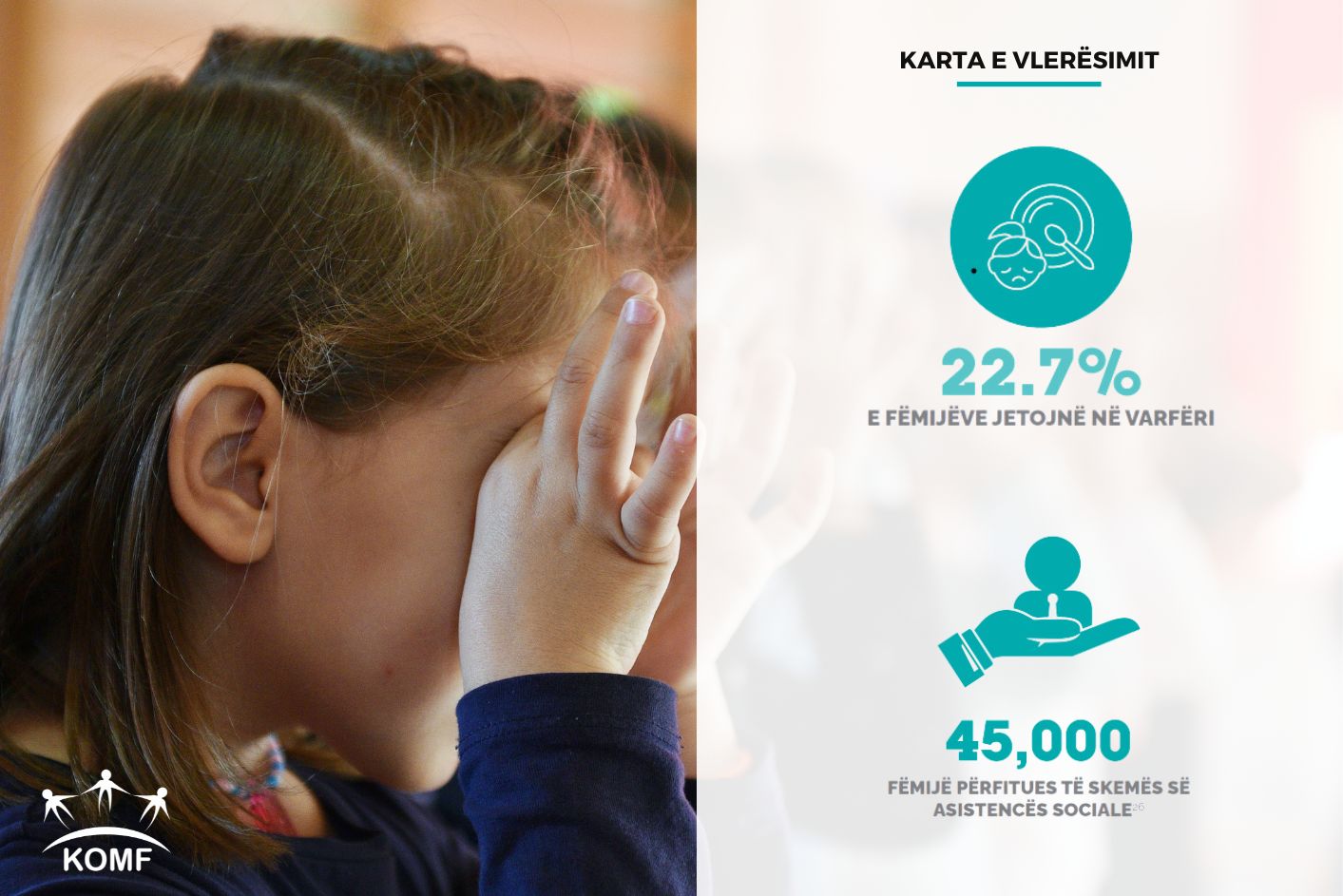
Kosovo with high levels of children living in poverty
Kosovo has still a high rate of children living in poverty and a high level of social exclusion of children. There are no oficial data on child poverty, for the last four years. According to Kosovo Agency of Statistics data for 2019, in Kosovo, 22.7% of children live in poverty and 7% of children live in extreme poverty.
These disturbing data reveal the challenges of a large group of children in Kosovo, who experience malnutrition, lack of necessary clothing and poor living conditions, which hinder children’ swell-being and development. The greatest inequalities still exist among the poorest children, children from marginalized communities such as Roma, Ashkali and Egyptian communities and children with disabilities.
The main support program for families was the Social Assistance Scheme and Child Benefits. During 2022, 22,980 families have been beneficiaries of social assistance, with a total number of 90,806 family members.
Out of this number, around 45,000 or 50% of them are children that also benefited from an additional 10 euros within their family. The amount of social assistance was ranging from 70 to 250 Euros per month. The monthly amount of the social assistance is too small to meet the basic living conditions of the family, especially with the inflation that has occurred in the last three years.
The social assistance scheme is not well adjusted and does not include all children and families living in poverty. Ministry of Finance, Labor and Transfers officials, have also stated that a number of families and children who have a difficult economic situation, are not part of the social assistance scheme beneficiaries. This is due to the criteria set in the Law on Social Assistance, such as the criteria where it is specified that the family must have at least one child under the age of 5 in order to benefit from the social assistance scheme, confirmation and assessment that the members of the family economy are subject of evaluations from medical commissions regarding their ability to work, lack of identification of accurate incomes and revenues to measure the family economy level of well-being, etc. Criteria (I) in Category II, Article 4, where it is determined that family must have at least one child under the age of 5, is discriminatory and absolutely unacceptable by all actors involved in the scheme and also by the beneficiaries.
All these shortcomings are expected to be addressed and regulated by the new Law on the Social Assistance Scheme, where it is expected to eliminate the discriminatory criteria and create opportunities for families with low incomes below the defined level, to benefit from the support of the scheme social assistance. Ministry of Finance, Labor and Transfers has started the process of compiling the new Draft Law of the Social Assistance Scheme, however, this draft law has not yet been approved. As a result, the current law continues to contain discriminatory criteria for children, thus, violating their essential rights.
In general, the current social protection system in Kosovo, although it provides a financial assistance, fails to respond to the diverse needs of vulnerable families and children. Investments have not been sufficient in order to make difference for the overall population in reducing poverty and in inequalities among children.
Currently, the social assistance scheme managed by Centers for Social Work operates separately, almost completely isolated from social services. It is estimated that a significant number of families living in poverty need also social and family services. Therefore, it is more than necessary to integrate the social assistance scheme and social services within the Centers for Social Work, as well as to connect them with employment centers.
Developing programs on poverty reduction and family empowerment, ensuring equal access to services and ensuring sustainable financing, are necessary steps to improve the wellbeing of vulnerable children and families in Kosovo.
The steps that need to be taken:
- Adopt the new Law on Social Assistance, exclusion of discriminatory criteria for children. Increase the monthly amount of social assistance in order to cope with the inflation of the recent years;
- Integrate or connect social assistance service with social and family services and with employment offices, with the aim of reducing poverty, increasing family wellbeing and increasing employment;
- Develop and implement services and programs to support families, aiming at providing services with the family being at the center of these services and providing integrated services;
- Develop and implement a family empowerment strategy to help families address economic and social challenges and improve their overall wellbeing. Social services, economic empowerment and good parenting programs should be available to all families living in poverty and identified as families in need;

Recent Comments